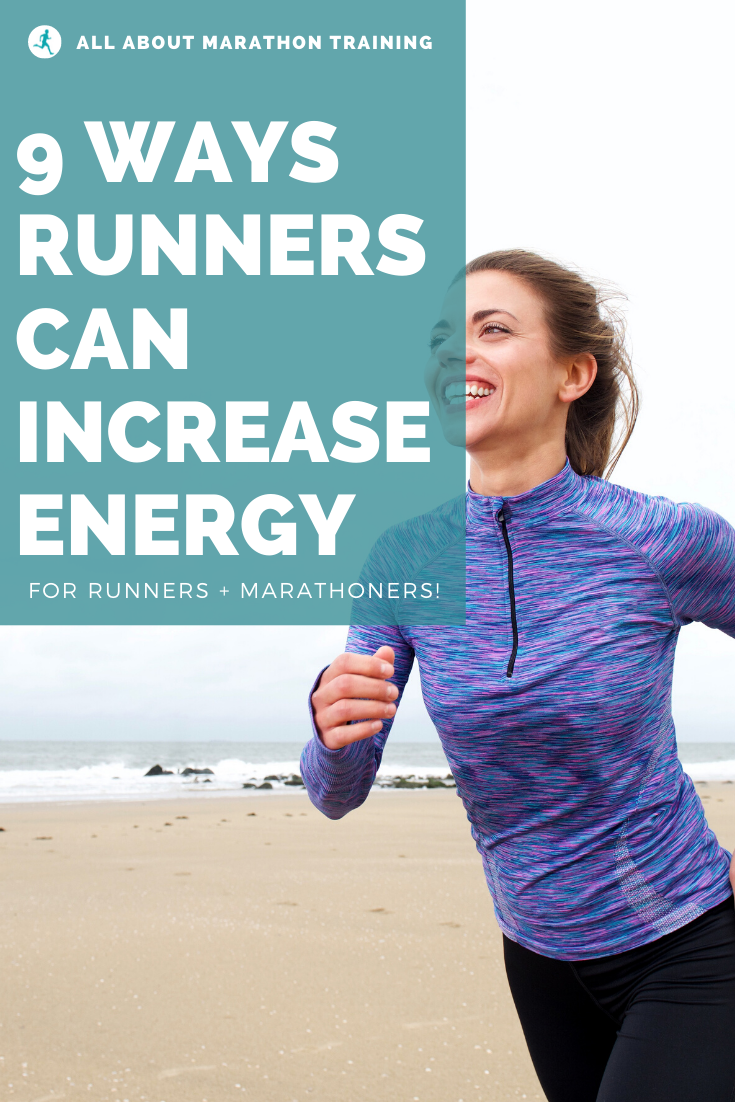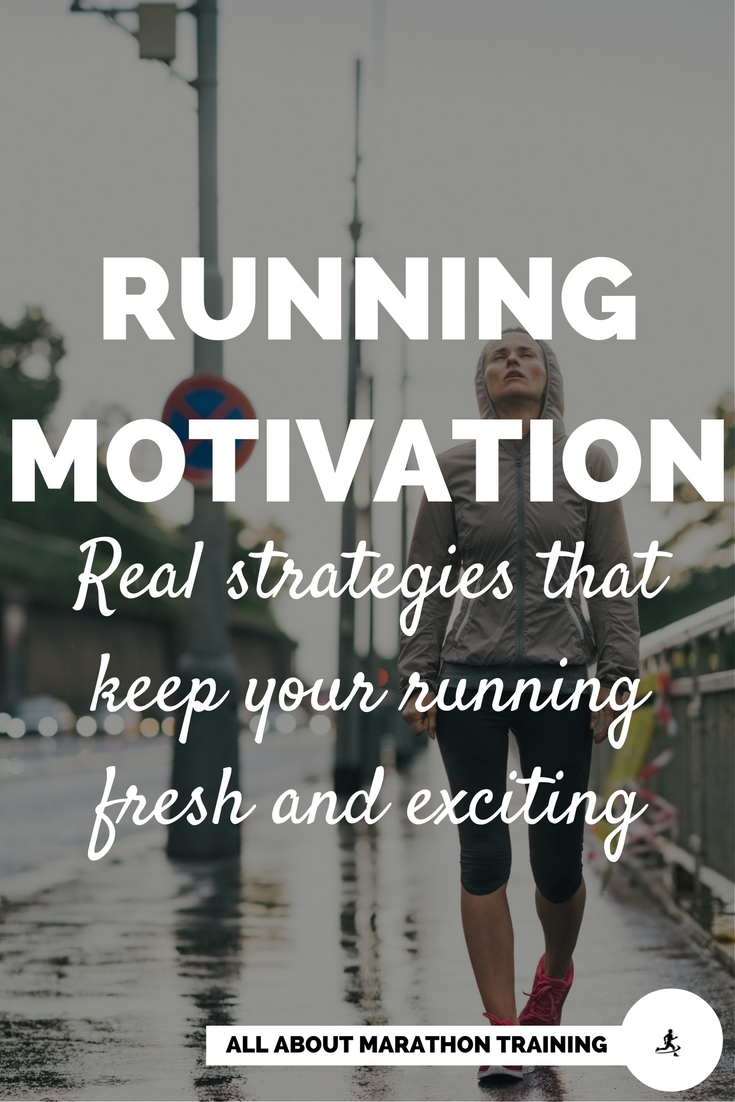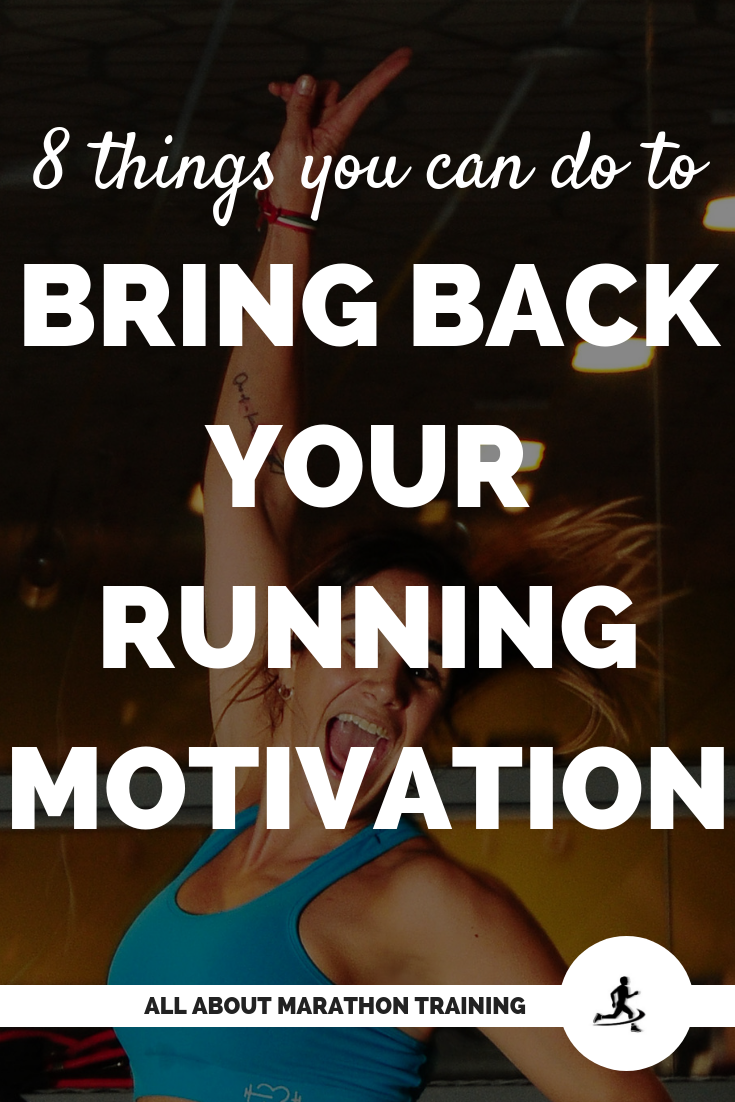9 Ways you can increase energy as a marathon runner
Do you want to increase energy levels as you train for a marathon?
As a runner, we go through seasons where we struggle with different things.
Some times we find it hard to find time to run.
Sometimes we don't have the motivation to run.
Sometimes we can't run when we would like to.
And other times we just don't have the energy to run.
If you are feeling a bit lethargic in your running and training maybe you will find these tips that I want to share to be useful.
On this page you will find:
- A case study of one marathoner’s struggle to increase energy + the solution for him
- Effective tips on how to increase energy for runners and marathoners
- How to determine what you need to do to boost energy
Let’s go!
A quick case study on one marathoner’s struggle with low energy levels:
Recently, a runner training with my Break 3:30 in the Marathon 16 Week Training Plan reached out to me with this question:
"I am currently on week 5 and am starting to feel like my energy is depleting and motivation decreasing.
My legs are feeling good, no pain or discomfort. I usually feel depleted the next day after the hill repeats for obvious reasons and then the next day. I don't feel sore, just energy depleted.
I’m getting 7-8 hours of rest a day, my nutrition I believe is good:
Breakfast; 1 egg, toast, slice of tomato, whey shake ( water, banana, almond milk)
Break; Apple or yogurt, water
Lunch; chicken, rice, broccoli, Brussel, water
Break; granola, milk
Supper: plain pasta, cut up tomatoes, salmon… or steak, sweet potatoes, and a green ( salad or steamed veg )
I’m 6’ 180lbs and I am struggling to figure out why my energy is becoming more and more depleted each day. I don’t want to become discouraged and lose the motivation which then impacts my run.
I also am not feeling full after meals but don’t want to overeat either.
Do you have any insight?"
Now I can't say for sure since I don't know what portion sizes this runner is consuming however upon looking at his nutrition for any given day I see that he could be eating more especially for his size!
In particular, he needs to include more complex carbohydrates!
Remember, carbohydrates are what fuels our running and marathon training especially when we are training for faster time goals!
There are some intense runs/workouts in the Break 3:30 plan and it's really important that he gives himself the fuel to be able to stay on top of the training plan.
What can you learn from this case study?
Your eating needs and portion sizes should naturally increase for the increase in the demand that you are placing on your body.
The key here is that low energy levels can be a sign of some underlying issue however tweaking your nutrition can make a huge difference in many cases.
Not always though and here are some other tips that might help you increase energy if you suffer from low energy levels as a runner.
9 Tips for runners to help increase energy levels
Tip #1: Assess your current training structure.
Ask yourself these questions:
- Are you including longer runs?
- More intense workouts?
- Have you changed something up?
All of this will translate into your body having different nutritional needs.
When you change your running goals you need to change the way you eat.
Some runners want to lose weight, some want to finish a marathon, some want to run a marathon and break a time goal, some want to run/walk a marathon, all of these require a varied way of fueling and you need to respond to that accordingly.
Tip #2: Record what you are eating on a typical day and see if you need to make adjustments.
At the end of each day that you have recorded your food intake, calculate how much of each macronutrient (in grams) you are eating.
Then ask yourself if this enough for your body and for your current running routine?
One resource that will help you determine this is my EAT LIKE A MARATHONER Nutrition course + Marathon Prep Plan.
EAT LIKE A MARATHONER takes your training paces, goal time, body size, etc. all into account and can tell you how many carbohydrates, fats, and proteins you need each day of training and leading up to marathon race day.
It also helps to create a race refuel plan that you could use on your long run days.
For guidance on each of the macronutrients and how they affect you as a runner see these pages:
- Why carbohydrates are important for a runner
- Proteins role in the nutrition of a runner
- How fat is important to a runner
Another thing to consider when you are looking at your food intake for the day is whether you are fueling properly before, during and after a long run.
If you are falling short in any of these areas then this will most definitely make an impact on your energy levels.
See these pages for how you should eat when you have long runs in your routine:
Tip #3: Look at your energy drink.
Finding a great energy drink as a marathon runner will make your long run days, your recover days, and your marathon race day, so much easier and greatly improve your chances of success!
Not only that but they definitely increase energy IF you are using the right kind at the right time.
Not only should you utilize an energy drink during your longer runs but if you are struggling with energy and feeling depleted, then also consider including your energy drink on your recovery days to build back your carbohydrate reserves.
My favorite energy drinks are either Generation UCan or Tailwind.
Tip #4: Consider being tested for vitamin deficiency, especially deficiency in Vitamin B.
B Vitamins help increase energy levels and make you feel like you do have the capacity and energy to go out and perform your training runs.
Taking a B Vitamin is something that you will need to test for yourself and become consistent with taking.
While it's easy to turn to vitamins in the hopes that they will fix problems, it's always best to be tested first as most of the time you receive the vitamins that you need in your diet if you are eating a balanced diet.
However, it's worth the effort as many people are deficient in B Vitamins especially if you are vegan or vegetarian.
I have a page on supplements for runners here where I recommend this B vitamin supplement.
Tip #5: Get enough sleep!
When you are training for a marathon, especially in the early weeks of marathon training your body needs extra rest!
It's adapting to running longer distances, performing harder workouts, and trying to keep up with the increasing weekly mileage!
You are going to feel a bit more drained and the best thing you can do to increase energy is accept the fact and be disciplined about going to bed at a reasonable hour and getting enough sleep.
7 to 8 hours is a general recommendation as always however, it truly is case dependent.
Therefore my suggestion is if you are in those early weeks of training or it's a long run or hard workout day, plan to get to bed 1 hour earlier.
This will give you the opportunity to rest and recover just a bit more!
Tip #6: Tell yourself that you only have to run 1 mile.
You must run 1 mile but after than you can then choose if you would like to keep going or not.
Remind yourself during that first mile that the first mile is often the hardest mile!
Your body is physiologically responding to being on a run, your head is still getting in the game and it can feel tough.
However, notice how the following miles just feel easier.
They really do!
Your body has adapted, your mind is not trying to hinder you as much and you feel better.
More often than not you will just keep going because you feel good and will feel that increase energy!
For this to work, you must be willing to allow yourself the grace to stop if you really do need to!
Sometimes it won’t be your day.
Maybe you are suffering from over-training, or your immune system is fighting something off, or you are slightly dehydrated.
There’s always tomorrow.
Tip #7 Run at the same time every day.
Your circadian rhythm, or your body’s internal clock, is a powerful tool that we should be harnessing.
We need to be instilling good habits in our daily life in order for it to work for us though.
Running at the same time every day will tell your body, “Hey, it’s that time again, time to run!”
You are also training your brain that this is what you do at this time and therefore it will not resist the idea as much!
Whether you run in the morning, noon or night is up to you, just try to run at the same time so that your circadian alarm clock will get in the habit of reminding you and making it easier for you to accomplish your run!
Tip #8: It’s okay to run slow.
Really slow.
If you are feeling low energy, it can be hard to move even when you know that is what can make you feel better!
Gretchen Rubin in her book, The Happiness Project, gives a great tip:
“Act the way you want to feel.”
It goes back to the fact that the way you think is how you feel is how you do.
You can reverse engineer this though as Rubin suggests by doing what you want to feel like doing even if you aren’t feeling it at that moment.
You will open those doors and feel the way that you want to in a moment.
But while your acting the way you want to feel you might need to take it slow.
So run that first mile slower or even just walk it!
Give yourself that moment and soon enough you will find that you are experiencing an increase energy level!
Tip #9: Run with a buddy.
Running with someone else is one of the most effective ways to experience increase energy.
It’s amazing how running with a partner can allow you to have an amazing run that you might have been dreading!
The other runner will most likely challenge you, encourage, and motivate you to keep going.
Find some running friends that you can keep on speed dial.
Look ahead at your running schedule, determine the runs that you might find hard or that you might not be motivated to do and then schedule that run with a friend.
You will both have a great time!
Bonus Tip #10: Don’t be afraid to re-work your training schedule!
Always, always, plan ahead!
Don’t just focus on your marathon training schedule though. All areas of your life compound and affect how your training will play out.
If you have a lot of commitments outside of running this will take a toll on your running.
Look ahead to see what’s on your agenda and plan accordingly.
If you see that you will be up late on a Friday night for an event but have a scheduled long run on Saturday it might make more sense to push that long run back to Sunday.
Learn to ebb and flow with what is happening and don’t stay too rigid to your plan.
Get your runs and workouts in but don’t be a slave to the schedule.
How to know what to focus on First?
What should you focus on first in order to increase energy?
Where should you even begin?
Pinpoint where you are struggling the most right now in order to effectively increase energy.
- Is it getting out the door for a run?
- Talking yourself out of a run?
- Not feeling good (upset stomach, minor aches or pains, perhaps a running injury)?
- Do you need to re-assess your nutrition?
- Do you need to find an energy drink, chew, or gel?
Pick one thing to start working on it today.
Change something in your eating or lifestyle and try to be consistent with implementing that change for at least a week to preferably one month.
Always ask yourself if what you are doing seems to be working for you.
And if you can’t find the thing to help you increase energy levels then you should consider seeing a specialist to make sure there are no underlying issues that are the cause.
In Conclusion:
There are many things that you can test out and do to help increase energy levels.
Sometimes it takes trial and error, sometimes it’s a simple tweak in your routine, and sometimes it’s as easy as playing a mind trick on yourself.
Do you have anything that really helps you when you are struggling with low energy levels?
I'd love to hear and share!
Quick list of products shared on this page:
- Break 3:30 in the Marathon 16 Week Training Plan
- My Actionable Nutrition Course for Marathoners: EAT LIKE A MARATHONER
- B Vitamin Supplement
- Generation UCan Energy Drink
- Tailwind Energy Drink
- Happiness Project Book
Pages related to increase energy
👋Sign up to receive the free printable strength exercises for runners: 👇
 |
As featured on:








New! Comments
Have your say about what you just read! Leave me a comment in the box below.